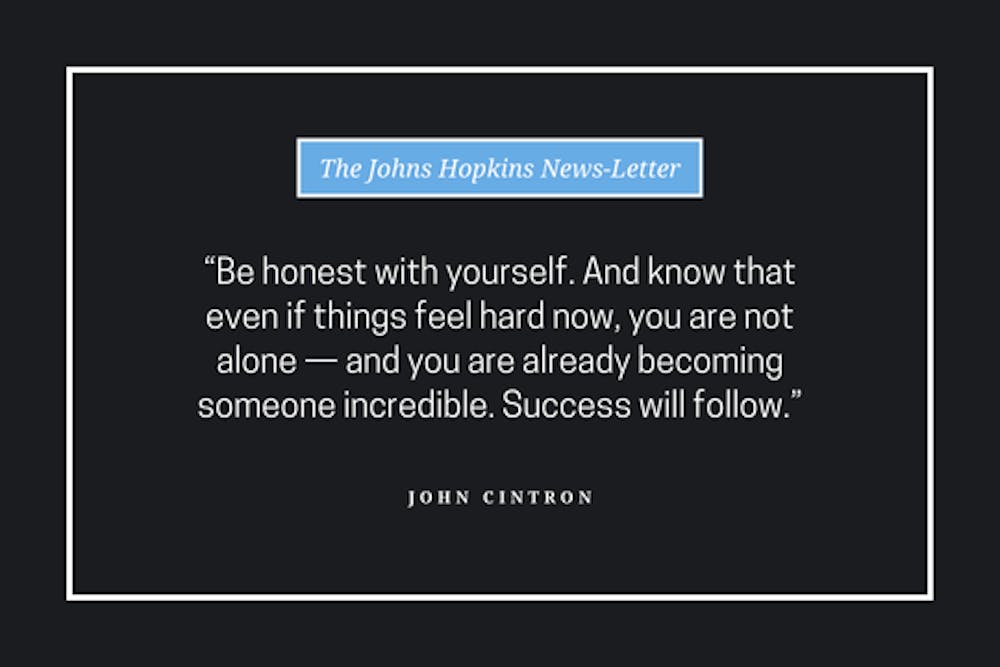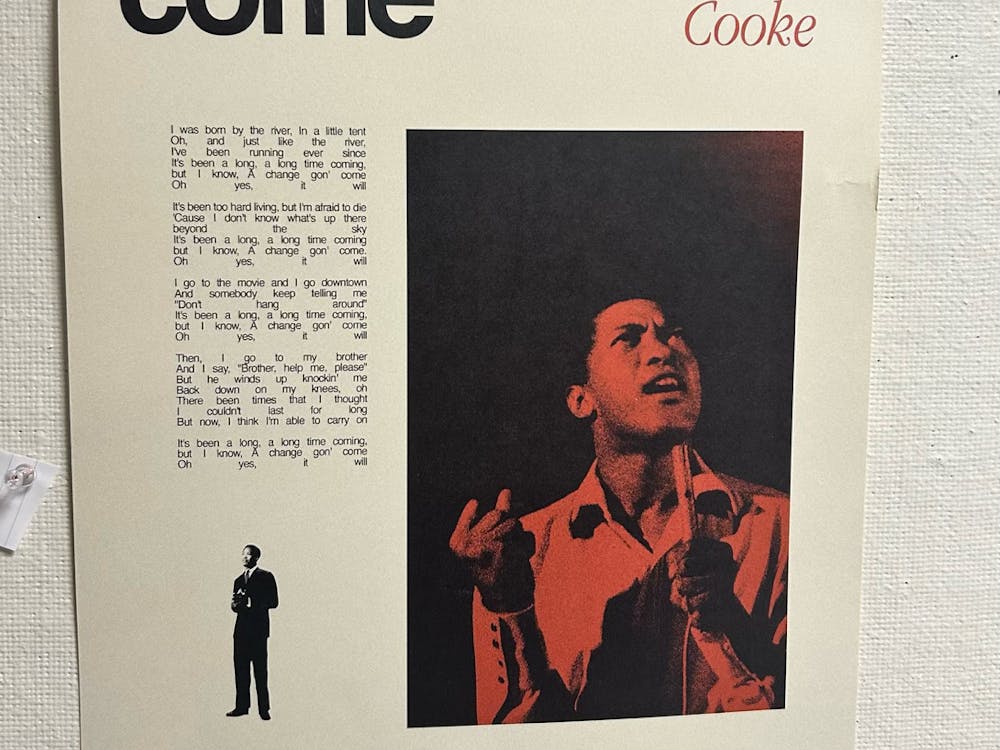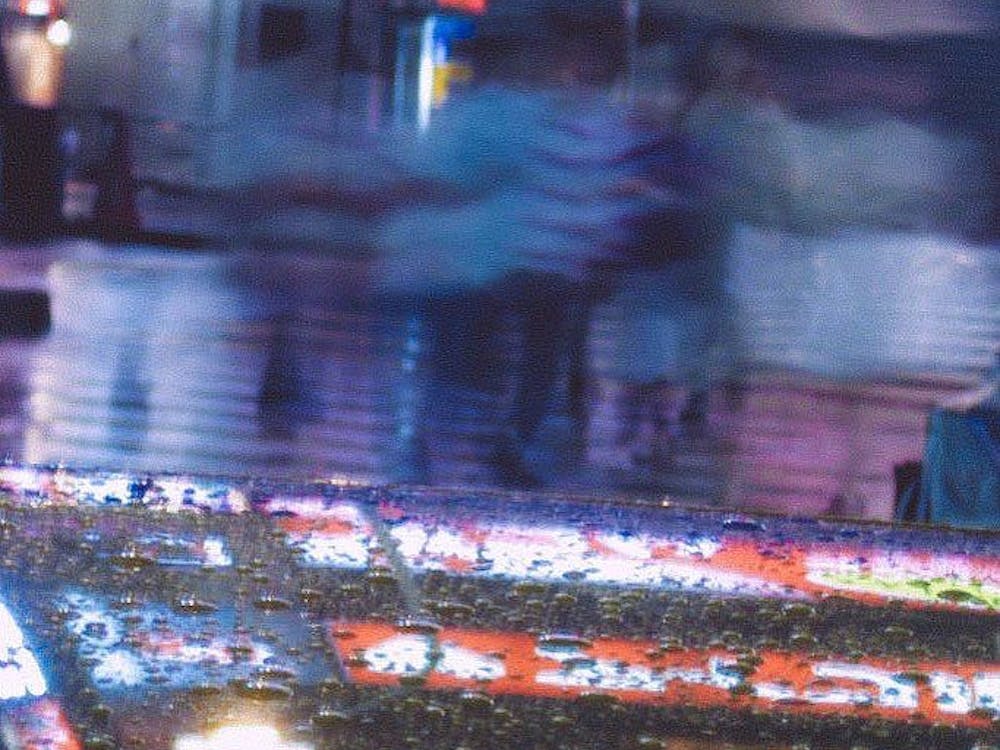When I first arrived at Hopkins, I was riding the high of graduating high school and coasting off an unforgettable summer. Like many others, I was thrilled — honored even — to be entering such a prestigious institution. I felt that I had made it. That my past successes were enough to carry me forward. That the hardest parts of life were behind me.
But reality set in quickly.
Fall semester began and I was surrounded by new faces and unfamiliar routines. While I filled my time with events, hangouts and even the occasional party, the connections felt shallow. I had fun, sure, but it was fleeting. I missed the comfort and camaraderie of my high school friendships. As the semester wore on, that nostalgic feeling deepened into something heavier.
Still, I made it through the fall relatively unscathed. My classes, while new in format, weren’t drastically harder than high school and I coasted through on past habits. I ended the semester with solid grades, hardly having to tap into the discipline I assumed would be required at Hopkins.
Then came spring — and everything changed.
My courses became exponentially harder, not just in content but in the mental effort they demanded. I had joined several activities, taken on responsibilities I didn’t fully care about and spread myself thin in ways I didn’t even notice until I was drowning. Suddenly, my brain felt foggy. I lacked motivation, clarity and energy. I began to shut down emotionally, academically and socially. My mental health hit an all-time low. There were days I barely left my dorm.
I couldn’t recognize myself — and worse, I didn’t understand why I was struggling so much. I had always thought I was “built different,” that I had something uniquely powerful in me that would carry me forward no matter the challenge. And so when I wasn’t thriving, I felt confused, embarrassed and even angry.
That spring was one of the hardest seasons of my life.
But summer brought a turning point. I had the opportunity to participate in a prestigious summer research program at the Broad Institute of Harvard & MIT, and for the first time in a while I felt like I was doing something that mattered to me. I reconnected with my curiosity, my passion for biomedical science and, more importantly, with a version of myself I actually liked — one that was humble, open to growth and genuinely inspired.
That experience didn’t fix everything overnight, but it sparked a change. I started asking myself the hard questions: What do I care about? What kind of life do I want to build? What does success actually mean to me? I realized I had spent too much time focusing on appearing impressive and hadn’t stopped to think about what fulfillment meant.
Looking back, I now see that mental health in college isn’t a checklist or a straight line. It’s a process. And it’s okay — normal even — to lose your footing sometimes. You will have moments of doubt. You might feel lost, unmotivated or overwhelmed. And that doesn’t mean you don’t belong here.
What I wish someone had told me as a freshman is this: You are not supposed to have it all figured out, and, like me, you may start off or continue with too many interests. The Hopkins journey is designed to challenge you intellectually, emotionally and physically. It will stretch you. It will break your rhythm. And sometimes it might break your heart a little too. But those moments aren’t signs of failure — they’re signs of transformation.
If you’re coming into the Nest with high hopes, hold onto them but be flexible. Dream big but don’t be afraid to change direction. Surround yourself with people who really see you. Ask for help early and often. Take advantage of the incredible resources here — from the research labs to student organizations that can offer you meaning and community.
And most importantly, be gentle with yourself. You’re not just here to succeed. You’re here to grow. To become someone who knows how to fall and rise again — stronger, wiser and more grounded.
Hopkins isn’t just about prestige or GPA (although they are definitely hard-earned perks). It’s about discovering the kind of person you want to become and working toward that version day by day. Your freshman year may not be picture-perfect, but it can be powerful. Let it be real.
Mental health struggles don’t disqualify you from greatness. They’re often the very thing that shapes it.
So step into your journey with curiosity. Stay open to change, whether it’s switching a major or minor or approaching problems from a different perspective. Be honest with yourself. And know that even if things feel hard now, you are not alone — and you are already becoming someone incredible. Success will follow.
John Cintron is a junior majoring in Chemical and Biomolecular Engineering with a minor in Applied Mathematics and Statistics from Fort Myers, Fla.





